It’s well known that Ben Franklin was a morning person. In his “Poor Richard’s Almanac,” he famously said, “Early to bed, early to rise, makes a man healthy, wealthy and wise.”
But what did Ben Franklin do when he got up early? What was his morning ritual?
That is less well known. In his autobiography, Ben Franklin wrote that the first thing he did when he woke up each day was to ask himself the following question: “What good shall I do this day?” (See the video at the top of this article.)
CAKE AND DEMOCRACY ARE A ‘SWEET’ COMBINATION, SAYS BESTSELLING AUTHOR: ‘FREEDOM IS A TREAT’
I love Ben Franklin’s ritual.
For most of my adult life, my default morning thoughts included questions such as, “What annoying tasks do I have to do this day?” and “What terrible things have happened in the world that I’ll read about when I open my laptop?”
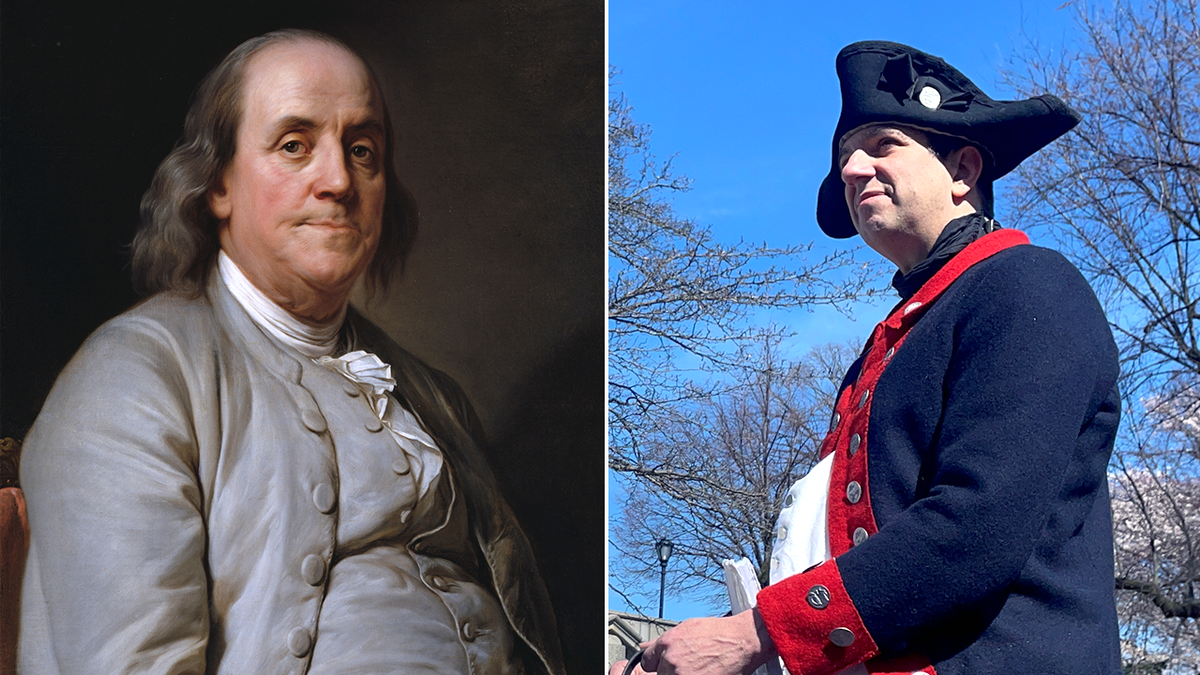
A.J. Jacobs, a New York City-based bestselling author (shown at right), spent a year “living” the Constitution — which included getting closer to the lives of America’s Founding Fathers. Shown at left Ben Franklin. (iStock; A.J. Jacobs)
Nowadays, I try instead to do what Ben Franklin advises: I ask myself, “What good can I do today?”
Written on a piece of paper, it now hangs over my desk as a reminder.
This new habit is the result of the year I spent recently trying to live like the Founding Fathers. I wrote about the wisdom I learned in my new book, “The Year of Living Constitutionally.”
“The Founders’ idea of virtue meant public-mindedness. A virtuous person puts the interests of others before their own interests.”
As Franklin’s morning ritual implies, the Founders were obsessed with the idea of virtue.
Nowadays, the word “virtue” has a bit of a cringey and fusty ring to it.
MAKING STUFF BY HAND TAPS INTO THE GREAT TRADITION OF AMERICAN INDIVIDUALISM
I hear the word most often used in the phrase “virtue signaling,” which is not a compliment.
“Virtue signaling” refers to someone who is ostentatiously trying to show off how righteous they are by, for instance, loudly asking a waiter about the living conditions of the bees that produced the honey for their oatmeal.
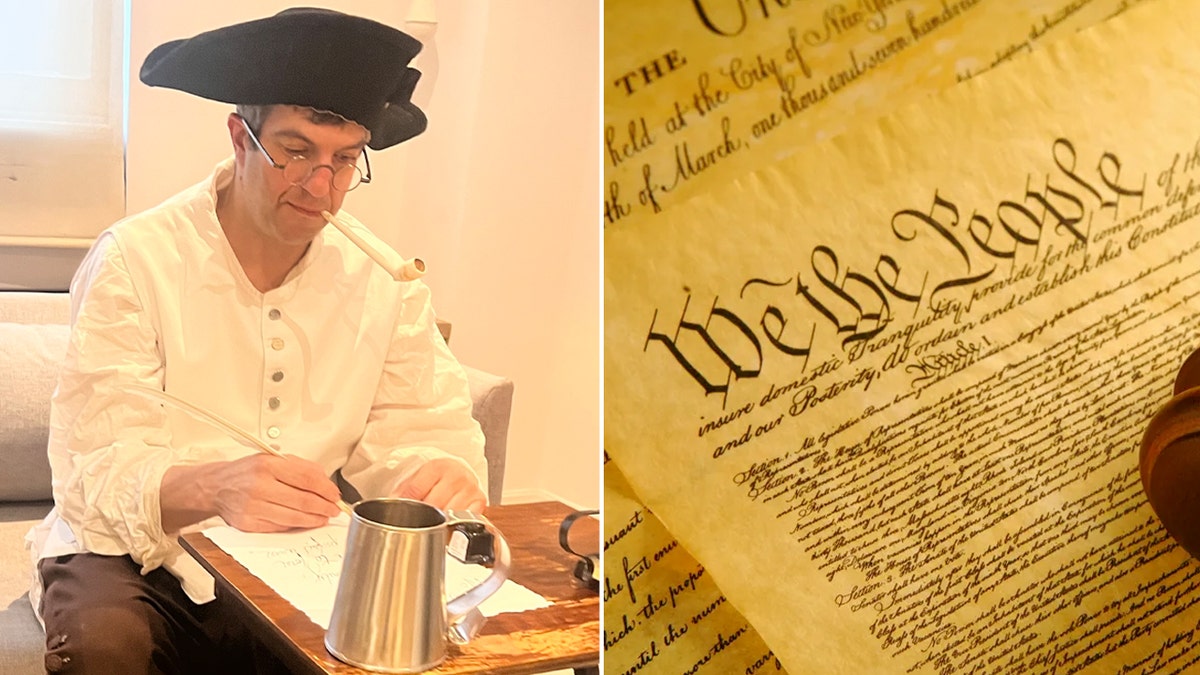
“The Founders’ idea of virtue meant public-mindedness,” said Jacobs. “A virtuous person puts the interests of others before their own interests. A virtuous person focuses on those two key words in the Constitution’s preamble: ‘General Welfare.’” (A.J. Jacobs; iStock)
In the Founders’ era, the word virtue had no such mixed connotations.
Virtue was a cherished ideal. In his book “First Principles,” Thomas E. Ricks writes that the Founders used the word virtue about 6,000 times in the collected writings from the Revolutionary era.
That’s more often than the word “freedom.”
“I almost wish the Constitution had a Bill of Responsibilities.”
The Founders’ idea of virtue meant public-mindedness. A virtuous person puts the interests of others before their own interests. A virtuous person focuses on those two key words in the Constitution’s preamble: “General Welfare.”
IN AN ELECTION YEAR, AMERICANS NEED FEWER HOT TAKES AND MORE COOL-HEADED REASONING
I think we’re due for a resurgence of virtue. I know I could use more of it.
As a rule, I’m too focused on my individual rights. Rights are wonderful, and I’m grateful that I live in a country that puts an emphasis on individual rights. But rights come with responsibilities.
I almost wish the Constitution had a Bill of Responsibilities.
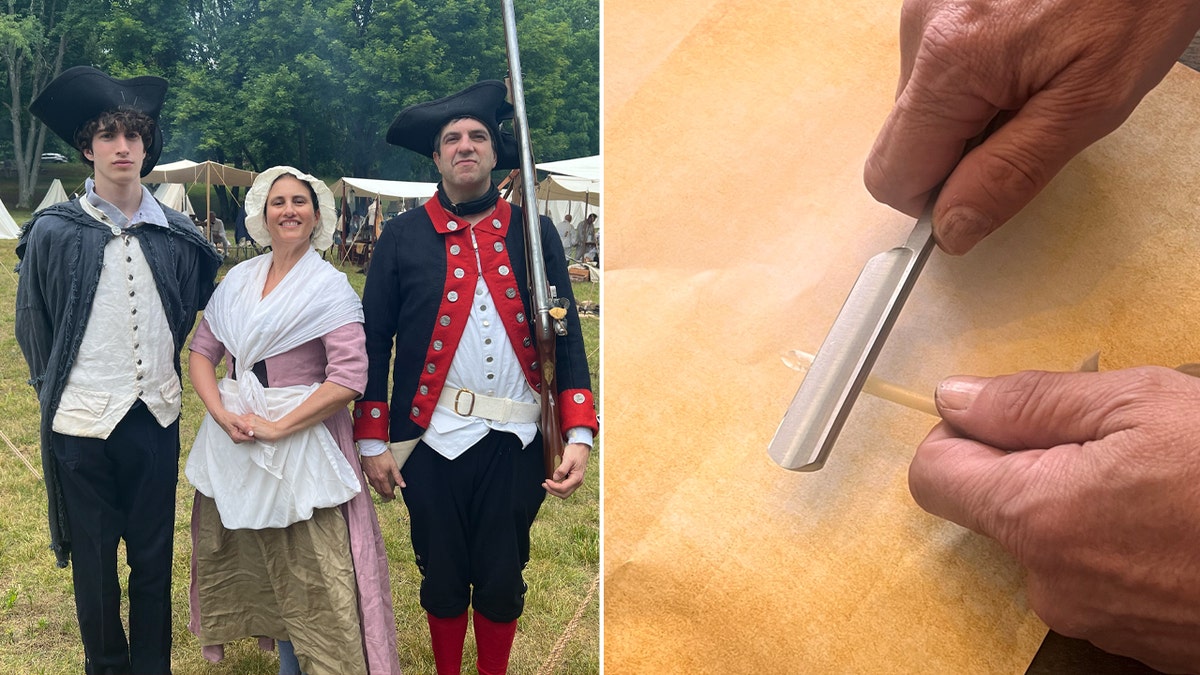
A.J. Jacobs, pictured at left with members of his family, “lived” the Constitution for a year — which included sharpening his own quill pen, at right, and growing closer to the meaning and intent of the Founding Fathers. (A.J. Jacobs)
The idea of public responsibility, I believe, was more ingrained in the 18th century and didn’t need to be spelled out. You were expected to sacrifice for your community.
If there was a fire, you were expected to be part of the bucket brigade, helping to save your neighbor’s house. If you were a man, you were expected to be a part of your local militia.
“If I’m depressed, I find the best thing to do is to help others. It gets me out of my head.”
When my wife and kids and I wrote a Constitution for our family — an exercise I fully recommend — we included a Bill of Rights, but also a Bill of Responsibilities.
WHY AMERICANS NEED MORE FACE-TO-FACE CIVIL DISCUSSIONS ‘WITH FOLKS OUTSIDE THEIR OWN BUBBLE’
It’s not about being saintly.
Service actually wasn’t opposed to happiness. It was integral to it.
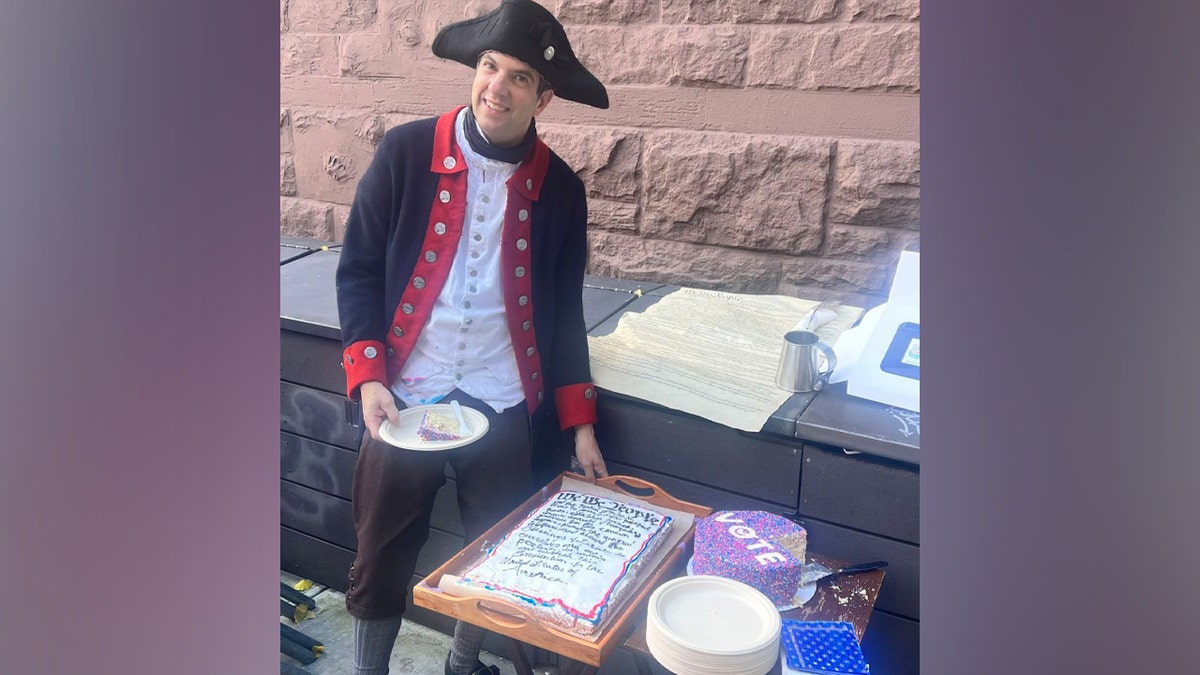
Jacobs is shown with an “Election Cake” offering as part of his “Year of Living Constitutionally,” the title of his most recent book. He writes that service to others “wasn’t opposed to happiness. It was integral to it.” (A.J. Jacobs)
As Jeffrey Rosen, president of the National Constitution Center, has said, “Happiness wasn’t about feeling good. It was about doing good.”
CLICK HERE TO GET THE FOX NEWS APP
I find this observation to be true in my own life. If I’m depressed, I find the best thing to do is to help others. It gets me out of my head.
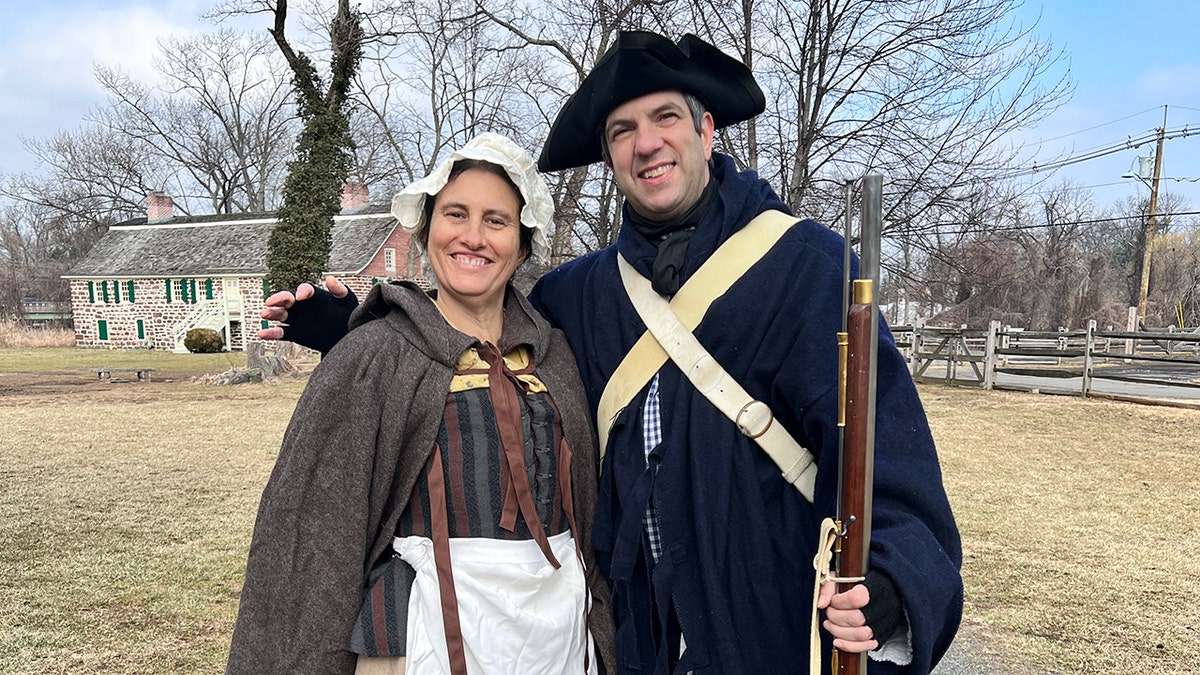
Jacobs, pictured here with his wife, spent a year living “constitutionally” — and wrote about it in his new book. (A.J. Jacobs)
That piece of paper over my desk serves as a moral North Star and helps tamp down my Larry David side.
When I start to get angry about something silly — such as my Instagram post didn’t get enough likes — I can look at the phrase and get a reality check.
For more Lifestyle articles, visit www.foxnews.com/lifestyle
It reminds me of the big picture.
“The Year of Living Constitutionally: One Man’s Humble Quest to Follow the Constitution’s Original Meaning” by A.J. Jacobs (2024) is published by Crown.
